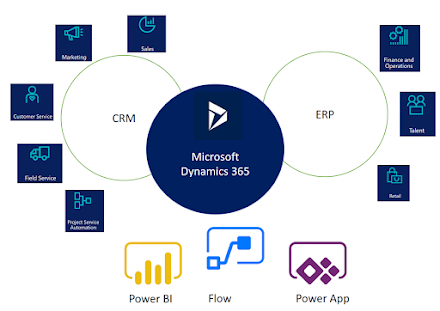Top open source web servers
Open-source web servers are a crucial component of the
internet infrastructure, allowing websites and applications to be hosted and
accessed by users around the world. These servers are built on open-source
software, meaning that the underlying code is freely available for anyone to
use, modify, and distribute. In this article, we'll take a look at some of the
top open-source web servers available today.
Apache HTTP Server
Apache is one of the oldest and most
widely used open-source web servers, first released in 1995. It has since
become the de facto standard for web servers, known for its stability,
reliability, and broad range of features. Apache is compatible with a variety
of operating systems, including Linux, Windows, and macOS, and supports popular
web technologies such as PHP, Perl, and Python. Apache also offers a modular
architecture that allows for customization and extensibility, making it a
popular choice for a range of web hosting needs.
Nginx
Nginx is a high-performance open-source web server that was
first released in 2004. It has since become one of the most popular web servers
in the world, known for its speed, scalability, and flexibility. Nginx is
particularly well-suited for handling large amounts of traffic and can be used
as a reverse proxy, load balancer, and HTTP cache. Nginx is compatible with a
variety of operating systems, including Linux, Windows, and macOS, and supports
popular web technologies such as PHP, Python, and Ruby.
Lighttpd
Lighttpd is a lightweight open-source web server designed
for high-performance environments. First released in 2003, it has become a
popular choice for serving static content such as images and videos. Lighttpd
is known for its low resource usage and efficient handling of concurrent
connections, making it an excellent choice for high-traffic websites. Lighttpd
is compatible with a variety of operating systems, including Linux, macOS, and
Windows, and supports popular web technologies such as PHP and Python.
Caddy
Caddy is a modern open-source web server that was first released in 2015. It is designed to be easy to use and highly secure, with automatic HTTPS certificate management and built-in support for popular web technologies such as PHP, Ruby, and Python. Caddy is compatible with a variety of operating systems, including Linux, macOS, and Windows, and offers a range of features, including HTTP/2 support, virtual hosting, and reverse proxying.
Tomcat
Tomcat is a Java-based open-source web server designed to serve Java web applications. First released in 1999, it has become a popular choice for hosting Java applications, supporting technologies such as JavaServer Pages (JSP) and Java Servlets. Tomcat can be used as a standalone server or as part of a larger application server, such as JBoss or GlassFish. Tomcat is compatible with a variety of operating systems, including Linux, macOS, and Windows, and is known for its stability and scalability.
Gunicorn
Gunicorn is a Python web server that is designed to run
Python web applications. It was first released in 2010 and has since become a
popular choice for hosting Python applications. Gunicorn is known for its
simplicity and ease of use. It supports a variety of Python web frameworks,
including Flask and Django.
Node.js
Node.js is a JavaScript runtime environment designed for server-side programming, first released in 2009. It has become a popular choice for building scalable and high-performance web applications, thanks to its event-driven architecture, which allows for efficient handling of concurrent connections. Node.js is compatible with a variety of operating systems, including Linux, macOS, and Windows, and supports popular web technologies such as Express and Socket.io.
OpenLiteSpeed
OpenLiteSpeed is an open source version of the LiteSpeed web server, which is known for its high performance and low resource usage. OpenLiteSpeed is designed to be easy to install and configure, and includes features such as HTTP/2 support and a web-based administration interface.
In conclusion, open-source web servers are an essential component of the internet infrastructure, allowing websites and applications to be hosted and accessed by users around the world. There are many open-source web servers available today, each with its own strengths and weaknesses. Apache, Nginx, Lighttpd, Caddy, Tomcat, Gunicorn, Node.js and OpenLiteSpeed are just a few of the top open-source web servers available today. When choosing a web server, it's important to consider factors such as performance, scalability, security, and ease of use, as well as compatibility with your specific applications and operating systems.











Comments
Post a Comment